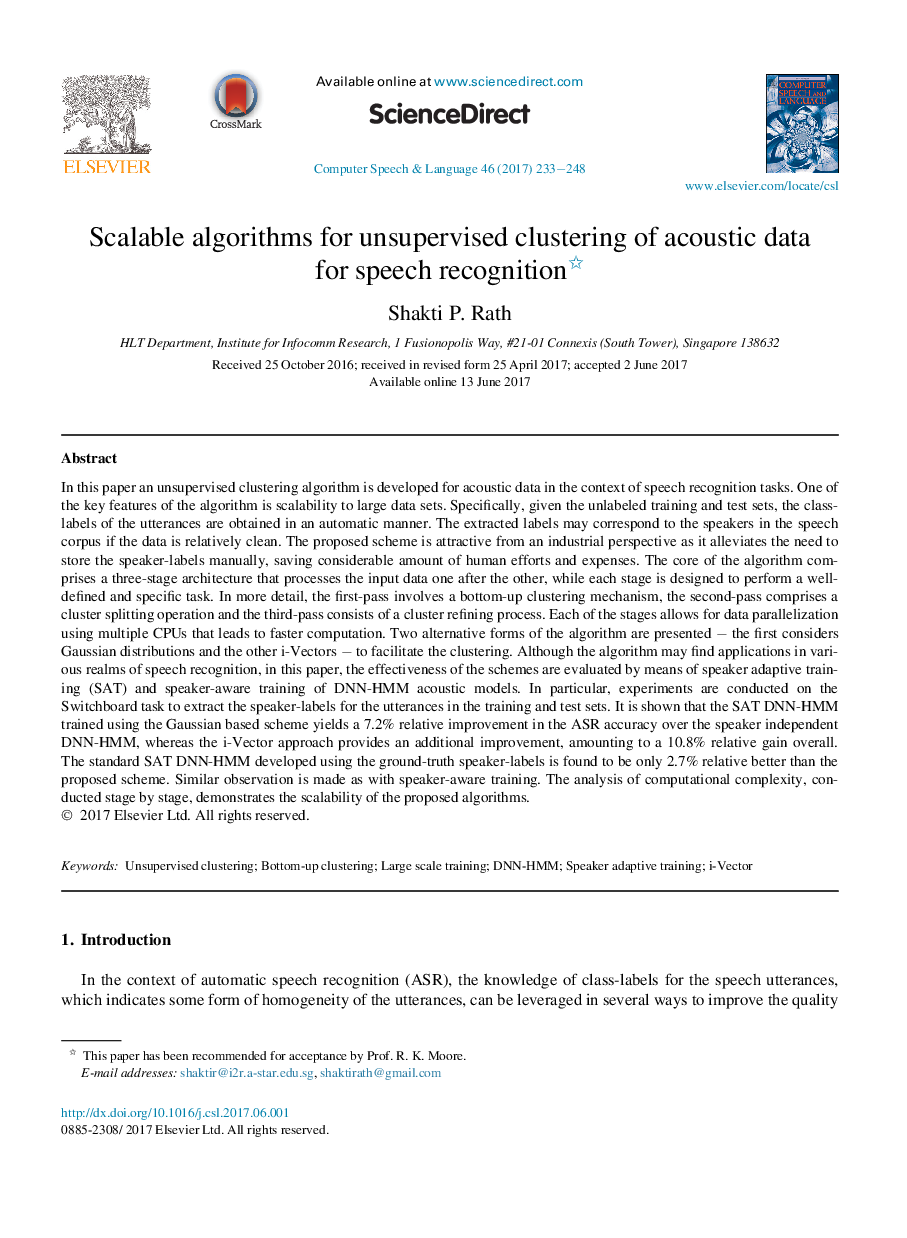ترجمه فارسی عنوان مقاله
الگوریتم های مقیاس پذیر برای خوشه بندی بدون نظارت داده های صوتی برای تشخیص گفتار
عنوان انگلیسی
Scalable algorithms for unsupervised clustering of acoustic data for speech recognition
| کد مقاله | سال انتشار | تعداد صفحات مقاله انگلیسی |
|---|---|---|
| 150786 | 2017 | 16 صفحه PDF |
منبع

Publisher : Elsevier - Science Direct (الزویر - ساینس دایرکت)
Journal : Computer Speech & Language, Volume 46, November 2017, Pages 233-248

